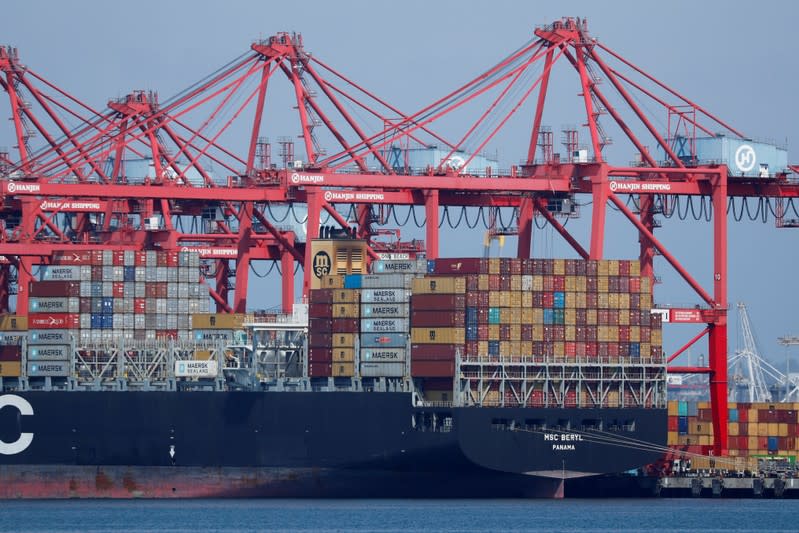WASHINGTON, (Reuters) - U.S. economic growth picked up slightly in the third quarter, rather than slowing as initially reported, amid a stronger pace of inventory accumulation and a less steep decline in business investment.
Gross domestic product increased at a 2.1% annualized rate, the Commerce Department said in its second estimate of third-quarter GDP on Wednesday. That was up from the 1.9% pace estimated last month.
The economy grew at a 2.0% pace in the April-June period. Economists polled by Reuters had forecast third-quarter GDP growth would be unrevised at 1.9%.
When measured from the income side, the economy grew at a 2.4% rate in the last quarter. Gross domestic income (GDI) increased at a rate of 0.9% in the second quarter. The income side of the growth ledger accelerated despite a drop in profits.
After-tax profits without inventory valuation and capital consumption adjustment, which corresponds to S&P 500 profits, decreased $11.3 billion, or at a rate of 0.6%, as they were held down by legal settlements with Facebook and Google. Profits increased at a 3.3% rate in the second quarter.
The average of GDP and GDI, also referred to as gross domestic output and considered a better measure of economic activity, increased at a 2.3% rate in the July-September period, quickening from a 1.4% growth pace in the second quarter.
There are signs the economy slowed early in the fourth quarter amid a cooling in consumer spending and a deepening downturn in business investment.
The Trump administration's trade war with China has eroded business confidence, contributing to the second straight quarterly contraction in business investment. The fading stimulus from last year's $1.5 trillion tax cut package is also sapping momentum from the expansion, now in its 11th year.
Growth has slowed from the 3.1% rate notched in the first three months of the year. But the risks of a recession in the near term have subsided as the housing market has rebounded from last year's soft patch, driven by lower mortgage rates.
The Federal Reserve last month cut interest rates for the third time this year and signaled a pause in the easing cycle that started in July when it reduced borrowing costs for the first time since 2008.
Growth in consumer spending, which accounts for more than two-thirds of U.S. economic activity, was unrevised at a 2.9% rate in the third quarter.
Consumer spending is being supported by the lowest unemployment rate in nearly 50 years. But moderating job growth, ebbing consumer confidence and stalling wage gains are raising doubts about the consumer's resilience.
Business investment dropped at a 2.7% rate in the third quarter, rather than contracting at a 3.0% pace as previously reported. The declines in spending on nonresidential structures such as mining exploration, shafts and wells, were not as steep as previously estimated.
Inventories increased at a $79.8 billion pace instead of the $69.0 billion pace reported last month.
(Reporting by Lucia Mutikani Editing by Paul Simao)
